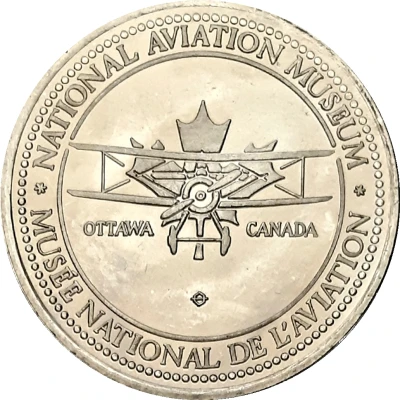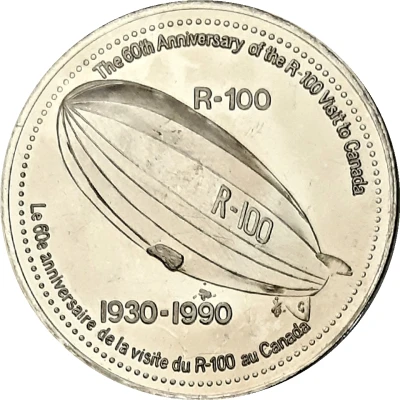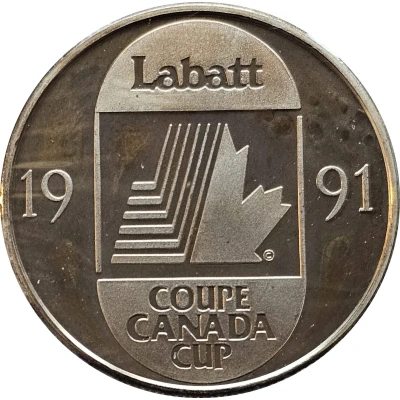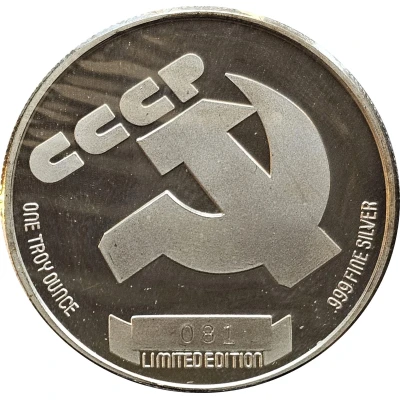


Medal - Labatt Canada Cup Finland
1991 year| Silver (.999) | 31.1 g | 38.8 mm |
| Location | Canada |
|---|---|
| Queen | Elizabeth II (1952-2022) |
| Type | Medals › Commemorative medals |
| Year | 1991 |
| Composition | Silver (.999) |
| Weight | 31.1 g |
| Diameter | 38.8 mm |
| Thickness | 3.25 mm |
| Shape | Round |
| Orientation | Medal alignment ↑↑ |
| Updated | 2024-11-12 |
| Numista | N#432384 |
|---|---|
| Rarity index | 97% |
Reverse
Script: Latin
Lettering:
SUOMI
ONE TROY OUNCE
.999 FINE SILVER
XXX (Serial number)
LIMITED EDITION
Unabridged legend: Suomi means Finland in Finnish.
Edge
Reeded
Comment
This is part of a series in which each of the six teams had a medal produced (Canada, United States, Finland, Sweden, Soviet Union (USSR/CCCP), and Czechoslovakia).
1991 Labatt Canada Cup:
The 1991 Labatt Canada Cup was a professional international ice hockey tournament played in August and September 1991. The finals took place in Montreal on September 14 and Hamilton on September 16, and were won by Canada. The Canadians defeated the USA in a two-game sweep, to secure the fifth and final Canada Cup. The tournament was replaced by the World Cup of Hockey in 1996.
Of the five Canada Cup tournaments, this is the only one in which a team went undefeated; Canada compiled a record of six wins and two ties in eight games. The first tie was a stunning 2–2 result with underdog Finland on the opening day of the tournament, who got spectacular goaltending from Markus Ketterer. Finland surprised many by finishing in third place in the round robin; the first time they had ever qualified for the semi-finals in the history of the Canada Cup. The Americans were also very strong, as they iced their best international line-up to date. They went a perfect 5–0 against European competition in the tournament while losing three times to Canada.
The team representing the USSR was relatively weak compared to past tournaments. It did not have many of its top stars due to severe political turmoil at home, with many players declining to play for the team or purposely left off the roster (such as Pavel Bure and Vladimir Konstantinov) for fears of defection. It was not known until weeks before the start of the tournament that they would even send a team. This was the final major senior event in which a team representing the USSR would play.



